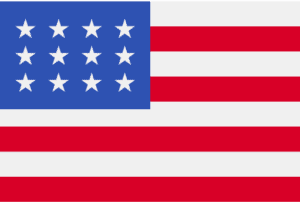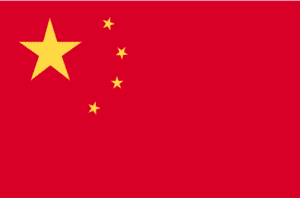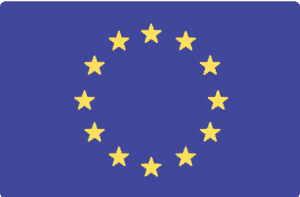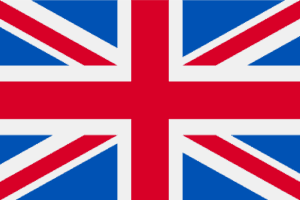Welcome to Watson’s Monthly! The Monthly is a document that gives you roundup of the major stories and developments that happened over the course of January.
This will give you a different view of how things developed over the month and will really help your understanding and recall of the events as they happened.
IN BIG PICTURE NEWS…
This month started with 130 countries signing up to an agreement to impose a global 15% minimum corporate tax rate. The plan is to bring the rules in during 2022 with a view to implementation in 2023. Only 9 countries out of the 139 involved (including Ireland, Hungary and Estonia) didn’t sign up although, intriguingly, some low tax countries – such as Switzerland and the Bahamas – signed up despite the fact that they will probably lose a significant amount of revenues as a result. This was a big moment because the OECD has been trying to hammer out some kind of agreement for about ten years! It was also interesting to see this month the advent of “health passes” in France that were needed to enter bars, restaurants, shopping centres and long distance trains. “Vaccine passports” also became a legal requirement for the first time in England to enter certain places with large numbers of people. Meanwhile, the latest OECD figures showed that inflation across the world’s leading nations rose at the fastest pace since 2008, keeping the pressure firmly on the world’s central banks regarding their strategy on interest rates as a way to curb continued price rises.
 In the US – inflation rose at the fastest rate since August 2008, up by 5.4% vs consensus of 4.9%. The pressure on the Fed chief to raise interest rates increased further as the latest data from the Bureau of Labor Statistics also showed that they were up by 0.9% on a monthly basis, the biggest monthly rise since June 2008. Having said that, the pressure eased slightly towards the end of the month as Q2 GDP figures were actually weaker than expectations.
In the US – inflation rose at the fastest rate since August 2008, up by 5.4% vs consensus of 4.9%. The pressure on the Fed chief to raise interest rates increased further as the latest data from the Bureau of Labor Statistics also showed that they were up by 0.9% on a monthly basis, the biggest monthly rise since June 2008. Having said that, the pressure eased slightly towards the end of the month as Q2 GDP figures were actually weaker than expectations.
 In China – exports shot up by 32.2% in June vs the previous year – a level that was way above expectations of 23%. However, China’s GDP growth rate slowed down but this was in line with expectations given that Q1’s growth rate of 18% was clearly unsustainable!
In China – exports shot up by 32.2% in June vs the previous year – a level that was way above expectations of 23%. However, China’s GDP growth rate slowed down but this was in line with expectations given that Q1’s growth rate of 18% was clearly unsustainable!
 In Europe – the ECB decided to move the goalposts and upgrade its previous inflation target – which has been in place since 2003 (!) – from “close to, but below, 2 per cent” to 2%, adding that it would be comfortable with it going above 2% in the short term. The latest data from Eurostat showed that EU house prices rose at their fastest pace since 2007 – something that will continue to put upward pressure on inflation. Business confidence in Germany is weakening, however, according to the closely-watched Ifo survey.
In Europe – the ECB decided to move the goalposts and upgrade its previous inflation target – which has been in place since 2003 (!) – from “close to, but below, 2 per cent” to 2%, adding that it would be comfortable with it going above 2% in the short term. The latest data from Eurostat showed that EU house prices rose at their fastest pace since 2007 – something that will continue to put upward pressure on inflation. Business confidence in Germany is weakening, however, according to the closely-watched Ifo survey.
 In the UK – the Bank of England’s Deputy Governor, Sir Dave Ramsden, had a bit of a wobble. He said at a speech that “I wouldn’t be surprised to see the whole inflation rate potentially rising as high as 4 per cent for a period later this year”, essentially calling into question the Bank of England’s recently-stated inflation target of 3%. Data showing that UK house prices rose by 10% as buyers tried to beat the stamp duty holiday deadline will continue to put the pressure on the BoE. “Freedom Day”, which had been delayed from June 21st to July 19th, came into being which meant the lifting of pretty much all Covid restrictions. It was also interesting to hear that there was talk of changing the listing rules for the London Stock Exchange in order to address the weakening trend of IPOs in recent years. Dual share structures and a lower free float requirement were among the measures that were mooted and, at the end of the month, the FCA announced rule changes that would make SPAC listings much easier.
In the UK – the Bank of England’s Deputy Governor, Sir Dave Ramsden, had a bit of a wobble. He said at a speech that “I wouldn’t be surprised to see the whole inflation rate potentially rising as high as 4 per cent for a period later this year”, essentially calling into question the Bank of England’s recently-stated inflation target of 3%. Data showing that UK house prices rose by 10% as buyers tried to beat the stamp duty holiday deadline will continue to put the pressure on the BoE. “Freedom Day”, which had been delayed from June 21st to July 19th, came into being which meant the lifting of pretty much all Covid restrictions. It was also interesting to hear that there was talk of changing the listing rules for the London Stock Exchange in order to address the weakening trend of IPOs in recent years. Dual share structures and a lower free float requirement were among the measures that were mooted and, at the end of the month, the FCA announced rule changes that would make SPAC listings much easier.
 In commodities – OPEC conducted virtual meetings to discuss production increases and failed to reach an agreement initially but eventually settled on raising production by 400,000 barrels per day. Meanwhile, coffee prices look set to rise in shops due to the effects of the worst drought in Brazil in a hundred years and anti-government protests in Colombia which stopped exports earlier this year
In commodities – OPEC conducted virtual meetings to discuss production increases and failed to reach an agreement initially but eventually settled on raising production by 400,000 barrels per day. Meanwhile, coffee prices look set to rise in shops due to the effects of the worst drought in Brazil in a hundred years and anti-government protests in Colombia which stopped exports earlier this year
…in cryptocurrency…
 The world’s #1 cryptocurrency exchange, Binance, had its European payment network suspended. This just came one week after the UK financial regulator, the Financial Conduct Authority, stopped UK customers from withdrawing cash via bank and card transfers after it decided that Binance’s British subsidiary did not have permission to provide regulated services. Then again, when you consider that a survey by Oxford Risk, a behavioural finance specialist, which showed that just 36% of people rated their understanding of cryptocurrencies as “poor” or “non-existent” when they first bought in – and that 21% added that they didn’t have an understanding of the market even after they’d sunk some money into it – you can see why regulators are keen to get involved in protecting investors! Bitcoin jumped at the end of the month, though, as a job ad appeared saying that the company was looking for people to “develop Amazon’s digital currency, blockchain strategy and product roadmap”, which was interpreted as meaning that Amazon was on the cusp of accepting Bitcoin as payment!
The world’s #1 cryptocurrency exchange, Binance, had its European payment network suspended. This just came one week after the UK financial regulator, the Financial Conduct Authority, stopped UK customers from withdrawing cash via bank and card transfers after it decided that Binance’s British subsidiary did not have permission to provide regulated services. Then again, when you consider that a survey by Oxford Risk, a behavioural finance specialist, which showed that just 36% of people rated their understanding of cryptocurrencies as “poor” or “non-existent” when they first bought in – and that 21% added that they didn’t have an understanding of the market even after they’d sunk some money into it – you can see why regulators are keen to get involved in protecting investors! Bitcoin jumped at the end of the month, though, as a job ad appeared saying that the company was looking for people to “develop Amazon’s digital currency, blockchain strategy and product roadmap”, which was interpreted as meaning that Amazon was on the cusp of accepting Bitcoin as payment!
It was also interesting to see that the Chinese authorities are forcing Ant Group’s Alipay and Tencent’s WeChat to take part in the development in the digital Yuan (which is scheduled to launch at next year’s Winter Olympics). Given the current climate of crackdown and regulatory tightening you would have thought that the companies will have no choice but to comply with such demands.
 …in environmental news…
…in environmental news…
There were some massive floods in Germany, Austria and Belgium this month and Angela Merkel said that “We have to up the pace in the fight against climate change”. The German government pledged €200m in flood aid in addition to the €250 promised by regional governments to help in one of the country’s biggest natural disasters for the last 100 years. Although not directly related, it was pretty poignant to see a report by British insurer Aon saying that insurance payments were going to be at a ten year high this year due to the sheer number of natural disasters. This will certainly be food for thought ahead of the Glasgow climate conference later this year.
 *** COVID POLICY/NEWS TIMELINE ***
*** COVID POLICY/NEWS TIMELINE ***
AMERICAS, US – Jul 19th US citizens are advised not to travel to the UK, which is moved classification to “very high” risk.
AMERICAS, CANADA – Jul 16th Canada says it wants to open its borders to the fully vaccinated by September.
ASIA, JAPAN – Jul 8th organisers of the Olympics announce a spectator ban.
EUROPE, FRANCE – Jul 28th France announces plans for a health pass for use in cafes and travel from Aug 9th.
ENGLAND, UK – Jul 5th England confirms plans to relax all rules on face masks and social distancing on July 19th, Jul 13th London mayor Siddiq Khan says face masks will continue to be mandatory on TfL services after Jul 19th, Jul 19th England removes almost all Covid restrictions including social distancing, July 22nd workers from 16 key sectors in the UK won’t have to isolate if they get pinged by the track and trace app.
IN CONSUMER AND RETAIL NEWS…
 A PwC report said that consumer sentiment is at its highest level since 2008 and a GfK survey showed that households are feeling increasingly confident about their own finances and the wider economy – something that has been helped by the still-tight labour market and the fact that households have saved so much over lockdown (according to the latest ONS figures, the savings ratio, which tracks the amount that households save as a share of their disposable income, increased to 19.9% in Q1). Mind you, research from the Resolution Foundation showed that household savings were not evenly spread across the population as the richest 20% of households were four times more likely to have saved more under lockdown than the poorest. The middle-classes were among the biggest winners, mainly due to the fact that property accounts for the greatest share of total wealth in this category – and prices have been going up. Fortunately for the wider economy, it seems that we have been spending – Barclaycard figures said that we spent 38% more at pubs during the Euros football tournament and because more bars, cafes and restaurants have been opening, Pepsi was confident enough to raise its full-year forecasts.
A PwC report said that consumer sentiment is at its highest level since 2008 and a GfK survey showed that households are feeling increasingly confident about their own finances and the wider economy – something that has been helped by the still-tight labour market and the fact that households have saved so much over lockdown (according to the latest ONS figures, the savings ratio, which tracks the amount that households save as a share of their disposable income, increased to 19.9% in Q1). Mind you, research from the Resolution Foundation showed that household savings were not evenly spread across the population as the richest 20% of households were four times more likely to have saved more under lockdown than the poorest. The middle-classes were among the biggest winners, mainly due to the fact that property accounts for the greatest share of total wealth in this category – and prices have been going up. Fortunately for the wider economy, it seems that we have been spending – Barclaycard figures said that we spent 38% more at pubs during the Euros football tournament and because more bars, cafes and restaurants have been opening, Pepsi was confident enough to raise its full-year forecasts.
 In retail, the latest BRC figures showed that UK retail sales rose at the fastest rate in Q2 since at least 1995 but Kantar data showed that online grocery sales actually fell for the first time ever. It seems that there are signs of life in the retail sector as British Land said that it is able to collect more rent from its retail tenants. Next was confident enough to raise full-year forecasts, Topshop is to have a physical presence in America as part of a deal between new owner Asos and US retailer Nordstrom and WH Smith bought half of Dixons’ airport outlets. DIY retailers Kingfisher (owner of B&Q and Screwfix) and Wickes increased full-year guidance and reported strong like-for-like sales growth respectively while Morrisons got another bidder (this time, another private equity firm Fortress) and Sainsbury’s announced more price cuts. John Lewis announced 1,000 job losses and that it will be embarking on another new venture – this time, home building, as part of efforts to diversify its business.
In retail, the latest BRC figures showed that UK retail sales rose at the fastest rate in Q2 since at least 1995 but Kantar data showed that online grocery sales actually fell for the first time ever. It seems that there are signs of life in the retail sector as British Land said that it is able to collect more rent from its retail tenants. Next was confident enough to raise full-year forecasts, Topshop is to have a physical presence in America as part of a deal between new owner Asos and US retailer Nordstrom and WH Smith bought half of Dixons’ airport outlets. DIY retailers Kingfisher (owner of B&Q and Screwfix) and Wickes increased full-year guidance and reported strong like-for-like sales growth respectively while Morrisons got another bidder (this time, another private equity firm Fortress) and Sainsbury’s announced more price cuts. John Lewis announced 1,000 job losses and that it will be embarking on another new venture – this time, home building, as part of efforts to diversify its business.
In CAR-RELATED NEWS…
 Nissan announced plans to build a major EV hub in Sunderland, Stellantis said that it would be spending €30bn on EV development and Mercedes bought British electric motor start-up Yasa. Global chip shortages are continuing to hit car production in China and Japan and Intel reckons that the current situation is likely to run into 2023 although rival chipmaker TSMC thinks that we have now worked through the worst of it. Interestingly, a company controlled by Chinese company Wingtech made a takeover approach to Newport Wafer Fab, but BoJo ordered an immediate review given objections raised about it being a sensitive British asset. Meanwhile, Samsung reported stellar quarterly profits that were powered by very strong sales of semiconductors.
Nissan announced plans to build a major EV hub in Sunderland, Stellantis said that it would be spending €30bn on EV development and Mercedes bought British electric motor start-up Yasa. Global chip shortages are continuing to hit car production in China and Japan and Intel reckons that the current situation is likely to run into 2023 although rival chipmaker TSMC thinks that we have now worked through the worst of it. Interestingly, a company controlled by Chinese company Wingtech made a takeover approach to Newport Wafer Fab, but BoJo ordered an immediate review given objections raised about it being a sensitive British asset. Meanwhile, Samsung reported stellar quarterly profits that were powered by very strong sales of semiconductors.
In TECH NEWS…
 Advertisers are moving over to Android as a result of the rollout of Apple’s new privacy policy – and the company also won a court case in China to stop companies using a work-around to avoid it.
Advertisers are moving over to Android as a result of the rollout of Apple’s new privacy policy – and the company also won a court case in China to stop companies using a work-around to avoid it.
Newly-listed Didi Chuxing piqued the ire of the Cyberspace Administration of China (CAC) which said that Didi had violated the laws on the collection and use of customer data – which sent the company’s share price down by 20%. Didi is now under investigation and rivals Caocao, T3 Chuxing and Meituan all upped their game to take advantage of their biggest rival being on the naughty step. Didi’s actions have prompted Chinese authorities to impose checks on all overseas listings with the CAC now saying that Chinese companies with over one million users will have to pass a security review before listing. This tech crackdown also led to Facebook, Twitter and Google threatening to quit Hong Kong in response to planned changes to the territory’s data protection laws which could render them liable for “the malicious sharing of individuals’ information online”.
 The Great China Crackdown continued this month as Chinese authorities turned around and essentially killed their $100bn edu-tech industry at a stroke by decreeing that any company teaching the national curriculum would no longer be allowed to make profits, raise capital or list on overseas stock exchanges – nor will they be allowed to accept foreign investment! It looks like this is all part of a general campaign by President Xi Jinping to bring corporate China under domestic control.
The Great China Crackdown continued this month as Chinese authorities turned around and essentially killed their $100bn edu-tech industry at a stroke by decreeing that any company teaching the national curriculum would no longer be allowed to make profits, raise capital or list on overseas stock exchanges – nor will they be allowed to accept foreign investment! It looks like this is all part of a general campaign by President Xi Jinping to bring corporate China under domestic control.
In other tech news, Google was fined €500m by the French regulator for violating an order to agree licensing deals with publishers but it also teamed up with Indian firm Jio to make a smartphone for the masses in India called the JioPhoneNext that will probably be priced under $50. In M&A, Tencent said that it was buying British games developer Sumo for over £900m and Zoom Video Communications announced the major acquisition of Five9, a company that provides cloud-based customer service software, in an all-stock deal valued at $14.7billion. This will help Zoom to expand its corporate and enterprise client offering.
Meanwhile, given that many aspects of our lives have moved online at a more rapid pace due to Covid over the last few years, some companies who try to keep us safe are doing rather well out of it. UK cybersecurity company Darktrace has seen its share price double since it listed in April and London-listed Avast is seeing takeover interest from Norton.
In FINANCIALS NEWS…
 Following on from the Refinitiv figures released last month that showed new highs in terms of deals done by private equity firms, British PE firm Bridgepoint had a strong market debut as its share price shot up by almost 30% on its first day of trading on the London Stock Exchange. Wise (the company-formerly-known-as-Transferwise) had a successful debut in London as well.
Following on from the Refinitiv figures released last month that showed new highs in terms of deals done by private equity firms, British PE firm Bridgepoint had a strong market debut as its share price shot up by almost 30% on its first day of trading on the London Stock Exchange. Wise (the company-formerly-known-as-Transferwise) had a successful debut in London as well.
 On the flipside, although Robinhood talked up its valuation to $35bn in the run-up to its IPO, the debut itself was pretty rubbish as it share price fell below its flotation price, which itself was at the bottom end of the range.
On the flipside, although Robinhood talked up its valuation to $35bn in the run-up to its IPO, the debut itself was pretty rubbish as it share price fell below its flotation price, which itself was at the bottom end of the range.
 It was generally a good month for banks as Goldman Sachs, JP Morgan, Bank of America, Citigroup, Wells Fargo and Morgan Stanley all did well as a loss in momentum of trading revenues was more than compensated for by advisory fees for IPOs and M&A activity. European banks including Deutsche and Santander also posted strong performances. In the UK, the Bank of England announced that it was going to allow banks to resume shareholder payouts (this had been suspended in the depths of the pandemic because authorities wanted to ensure the banks kept enough money to withstand any further economic shocks) in a mark of confidence – and challenger bank Revolut saw its implied valuation rise to $33bn in its latest funding round. Barclays, Metro and Lloyds Bank all announced solid performances – the latter was even confident enough to raise its full-year forecasts!
It was generally a good month for banks as Goldman Sachs, JP Morgan, Bank of America, Citigroup, Wells Fargo and Morgan Stanley all did well as a loss in momentum of trading revenues was more than compensated for by advisory fees for IPOs and M&A activity. European banks including Deutsche and Santander also posted strong performances. In the UK, the Bank of England announced that it was going to allow banks to resume shareholder payouts (this had been suspended in the depths of the pandemic because authorities wanted to ensure the banks kept enough money to withstand any further economic shocks) in a mark of confidence – and challenger bank Revolut saw its implied valuation rise to $33bn in its latest funding round. Barclays, Metro and Lloyds Bank all announced solid performances – the latter was even confident enough to raise its full-year forecasts!
In other interesting developments in tech/financials, Apple announced that it was teaming up with Goldman Sachs to provide a “Buy Now, Pay Later” service to be called “Apple Pay Later”, which should get Klarna worried. Elsewhere, investment giant Vanguard announced its first ever acquisition in the form of California-based wealth management boutique Just Invest, in order to broaden its product offering. Also, US financial group Raymond James announced intentions to purchase Charles Stanley, the 229-year-old City stalwart, for £279m in the latest deal in the rapidly-consolidating wealth management sector.
In TRAVEL INDUSTRY NEWS…
 The US is experiencing an uptick in bookings to such an extent that airports are struggling to cope with demand! The latest figures from American Express Global Business Travel showed that bookings from financial and professional services firms were making a strong comeback. It was interesting to note that demand was particularly strong from SMEs, who presumably have to deal with less bureaucracy to get permission to go on business trips.
The US is experiencing an uptick in bookings to such an extent that airports are struggling to cope with demand! The latest figures from American Express Global Business Travel showed that bookings from financial and professional services firms were making a strong comeback. It was interesting to note that demand was particularly strong from SMEs, who presumably have to deal with less bureaucracy to get permission to go on business trips.
There was more good news for the industry as the double-jabbed in England are now allowed to enjoy quarantine-free travel and Ryanair announced it was going to be hiring 2,000 new pilots over the next three years. There’s continued confidence in the UK staycation space as Center Parcs said that it would be developing a new UK site in West Sussex, near Crawley.
ELSEWHERE…
 There were mixed fortunes in streaming – as Netflix reported one of its weakest ever quarters for new subscribers while HBO Max announced an increase in the number of subscribers.
There were mixed fortunes in streaming – as Netflix reported one of its weakest ever quarters for new subscribers while HBO Max announced an increase in the number of subscribers.
It seems that consumers are getting a bit more energetic, though, as PureGym said that it is seeing demand rising above pre-Covid levels and is considering the possibility of an IPO.
Supply chain problems are continuing as freight costs are now sky-high and British builders reckon that the current shortage of materials – such as bricks, cement and timber – will continue for the next six to nine months. Airlines are now facing fuel shortages because there aren’t enough lorry drivers to transport fuel and existing fuel stocks being prioritised for planes involved in fighting current wildfires in the US.




